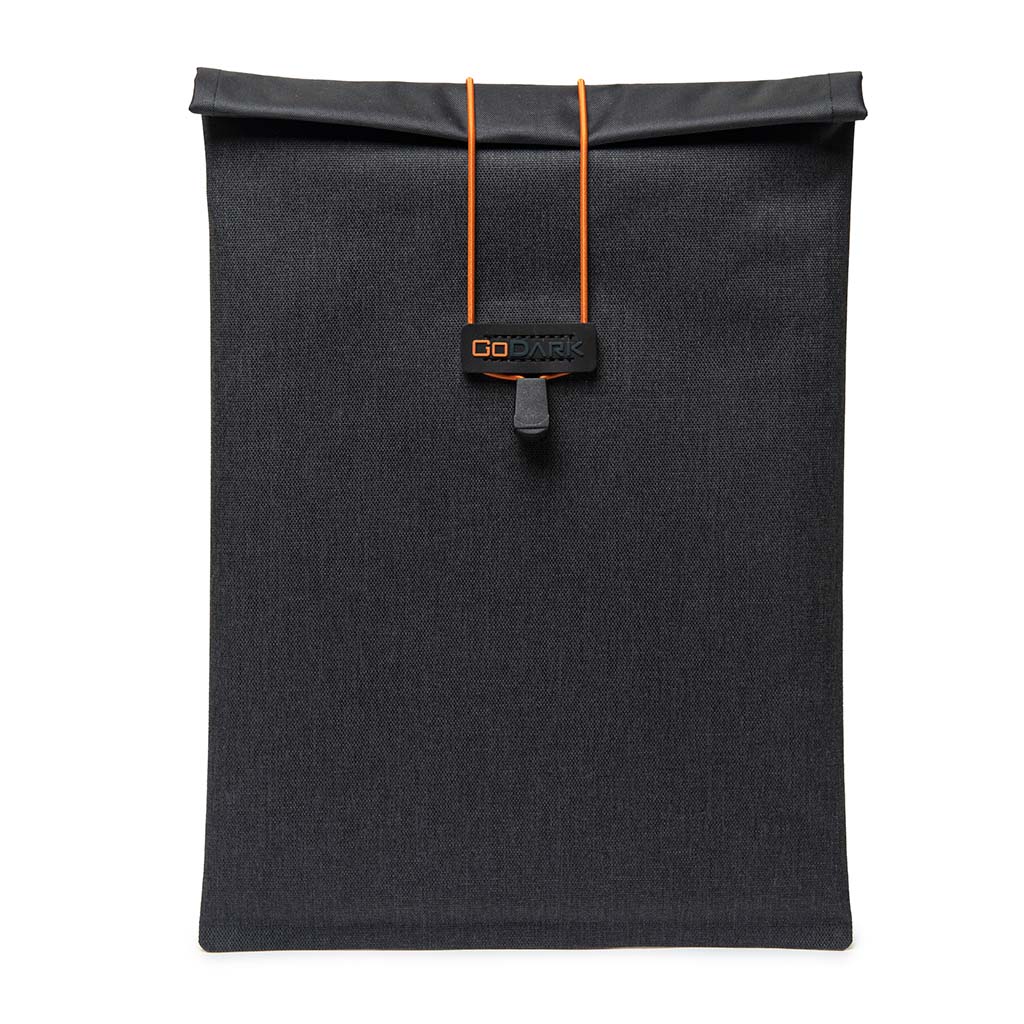Your Cart is Empty

Recommended Products
GoDark® Faraday Bag for Tablets
£63.00


Perhaps going somewhere you'd like to keep private?
Meeting someone you don't want others to know?
Or to stop hackers from accessing your phone's data altogether?
You need a GoDark Faraday Phone Bag!


Perhaps going somewhere you'd like to keep private?
Meeting someone you don't want others to know?
Or to stop hackers from accessing your phone's data altogether?
You need a GoDark Faraday Phone Bag!
It keeps track of all your digital activities and uploads them online, adding more and more information about you, saved somewhere in the digital space.
In theory, that data should be harmless.
It's encrypted and anonymized to protect you in case it falls into the wrong hands.
Plus, data privacy laws forbid companies and the government from sharing this data without court order.
In reality, keeping that data private doesn’t always work.
Here are some REAL-WORLD CASES of people's supposedly encrypted and anonymized data getting hacked, reverse engineered and used to track down their personal identity and exploit their information:

Exposed Medical Record Without Consent
An anonymized medical database was successfully combined with a voters list to extract the health record of the governor of Massachusetts, William Weld, obviously without his consent.¹

Wrongfully Tagged As Suspect Due To Location Data
Zachary McCoy found out that the local police in Florida were looking for him. The reason? His location data in Google showed that he was in the area where a burglary happened 8 months ago.He had to hire a lawyer to block the warrant and stop law enforcement from getting any more personal information about him. ²

Colfax Police Collected Data On Hundreds Of Individuals Without Their Consent
In California, a geofence warrant was issued during a home invasion case, but it led to collecting data on hundreds of individuals, many of whom were not connected to the crime. This raised concerns about the scope and invasiveness of such searches, violating the privacy of many uninvolved citizens.³
It's clear that in the wrong hands, your location data is the skeleton key to exposing your private information — personal, financial and medical — without your consent.
It keeps track of all your digital activities and uploads them online, adding more and more information about you, saved somewhere in the digital space.
In theory, that data should be harmless.
It's encrypted and anonymized to protect you in case it falls into the wrong hands.
Plus, data privacy laws forbid companies and the government from sharing this data without court order.
In reality, keeping that data private doesn’t always work.
Here are some REAL-WORLD CASES of people's supposedly encrypted and anonymized data getting hacked, reverse engineered and used to track down their personal identity and exploit their information:

Exposed Medical Record Without Consent
An anonymized medical database was successfully combined with a voters list to extract the health record of the governor of Massachusetts, William Weld, obviously without his consent.¹

Wrongfully Tagged As Suspect Due To Location Data
Zachary McCoy found out that the local police in Florida were looking for him. The reason? His location data in Google showed that he was in the area where a burglary happened 8 months ago.He had to hire a lawyer to block the warrant and stop law enforcement from getting any more personal information about him. ²

Colfax Police Collected Data On Hundreds Of Individuals Without Their Consent
In California, a geofence warrant was issued during a home invasion case, but it led to collecting data on hundreds of individuals, many of whom were not connected to the crime. This raised concerns about the scope and invasiveness of such searches, violating the privacy of many uninvolved citizens.³
It's clear that in the wrong hands, your location data is the skeleton key to exposing your private information — personal, financial and medical — without your consent.
Unless you're willing to ditch all your smart devices and live under a rock, then there's no permanent way of stopping your electronics from uploading more information about you online.
The next best thing isto selectively pick which times you allow your phone to collect data about you.
And that's where GoDark Bags can help.

Perhaps going somewhere you'd like to keep private?
Meeting someone you don't want others to know?
Or to stop hackers from accessing your phone's data altogether?
Use a GoDark Bag!

Perhaps going somewhere you'd like to keep private?
Meeting someone you don't want others to know?
Or to stop hackers from accessing your phone's data altogether?
Use a GoDark Bag!
Put your phone inside the bag and it effectively stops all tracking signals - including 4G, 5G, Wi-Fi, Cell, Bluetooth, and GPS.
This means no data is exchanged between the apps on your phone and the online servers and cell towers.
NO CALLS! NO TEXTS! NO SIGNAL!
Zero communication means no location data is collected, and no new data is added to your "digital profile."
If someone gets hold of your phone and checks your location during those times when you had the phone inside the bag...
All they'd see are black patches - it will look like you've suddenly dropped from the grid.
GoDark Bags IS THE BEST WAY TO SELECTIVELY GO COMPLETELY OFFLINE.
It's putting your privacy back in your control.